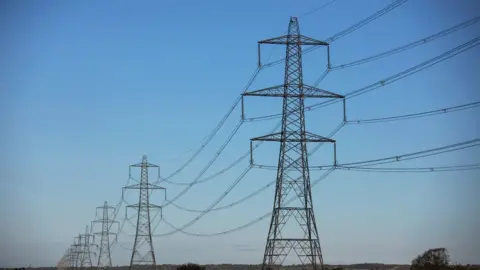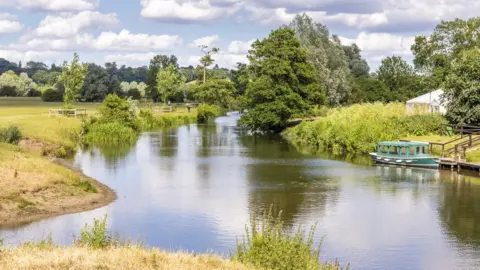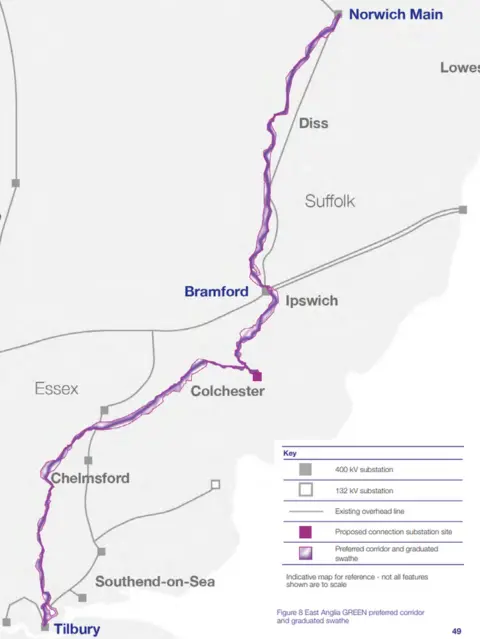East Anglia pylons: Campaigners welcome independent review
 Getty Images
Getty ImagesOpponents of a 112-mile (180km) line of pylons have welcomed an electricity transmission review of East Anglia.
National Grid's proposed network of pylons, from Norwich to Tilbury in Essex, would carry electricity generated by offshore wind farms.
Campaigners want the power line built under the sea and the Electricity System Operator (ESO) review is due to look at offshore routes.
National Grid has been approached for comment.
 Getty Images
Getty ImagesIts East Anglia Green proposal aims to reinforce the electricity grid to cope with rising electricity output, especially from offshore wind, and it wants to submit a final proposal to the government's Planning Inspectorate by 2024.
It previously said running the entire route underground, or offshore, would cause greater disruption and bump the cost up from £793m to £2bn-£4bn.
The independent review will look at offshore routes, assess the costs and benefits, and "benchmark" costings against other UK projects.
 National Grid
National GridJames Cartlidge, Conservative MP for South Suffolk, said that "at last" the affected communities "will get the chance to see a comprehensive cost-benefit analysis".
He said that, while he supports the need for the grid to be reinforced, it was "vital that consideration of new infrastructure looks at all potential options" and he had been calling for an independent expert to look at the options.
"This review is not of itself a guarantee that plans for onshore reinforcement will be cancelled... however, what my constituents have wanted is a fair process, with open discussion of the relative merits of onshore and offshore options," he said.
"It now appears that we will get that information, so that a proper debate can proceed."
Twelve other regional MPs, in the Offshore Electricity-Grid Taskforce (OffSET) welcomed the review.
Harwich and North Essex's Tory MP, Sir Bernard Jenkin, said: "Hopefully, this puts everything on hold, just for a short period, while we look at longer term, more viable and sustainable alternatives to just pylons over peoples fields and homes."
Campaigners have said an overland route would be more environmentally damaging and there was a "far better option offshore".
Rosie Pearson from the Essex Suffolk Norfolk Pylons group said: "It costs £2bn less to build what's called a co-ordinated offshore grid in the North Sea rather than each wind farm doing its own thing... so it's better for the environment, it's better for the consumers and better for the community.
"We will [now] have what looks like a transparent and open review... and they say they are going to allow community involvement."
The review is expected to be published in the summer.

Find BBC News: East of England on Facebook, Instagram and Twitter. If you have a story suggestion email [email protected]
